
The Book of Mormon is a religious text of the Latter Day Saint movement, which, according to Latter Day Saint theology, contains writings of ancient prophets who lived on the American continent from approximately 2200 BC to AD 421. It was first published in March 1830 by Joseph Smith as The Book of Mormon: An Account Written by the Hand of Mormon upon Plates Taken from the Plates of Nephi. The Book of Mormon is one of the earliest of the unique writings of the Latter Day Saint movement, the denominations of which typically regard the text primarily as scripture, and secondarily as a historical record of God's dealings with ancient inhabitants of the Americas. Some Mormon academics and apologetic organizations strive to affirm the book as historically authentic through their scholarship, but mainstream archaeological, historical and scientific communities do not consider the Book of Mormon to be an ancient record of actual historical events.

Mary Ann Evans, known by her pen name George Eliot, was an English novelist, poet, journalist, translator and one of the leading writers of the Victorian era. She wrote seven novels: Adam Bede (1859), The Mill on the Floss (1860), Silas Marner (1861), Romola (1862–63), Felix Holt, the Radical (1866), Middlemarch (1871–72) and Daniel Deronda (1876). Like Charles Dickens and Thomas Hardy, she emerged from provincial England; most of her works are set there. They are known for their realism, psychological insight, sense of place and detailed depiction of the countryside.

In religion, a prophet is an individual who is regarded as being in contact with a divine being and is said to speak on behalf of that being, serving as an intermediary with humanity by delivering messages or teachings from the supernatural source to other people. The message that the prophet conveys is called a prophecy.

Al-Ghazali, known in Persian-speaking countries as Imam Muhammad-i Ghazali, was a Persian polymath, who was one of the most prominent and influential philosophers, theologians, jurists, logicians and mystics, of Islam.

James Martineau was an English religious philosopher influential in the history of Unitarianism.
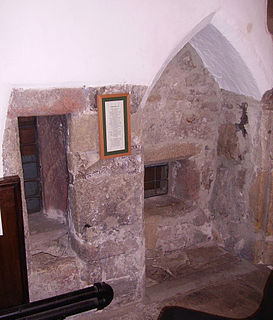
An anchorite or anchoret is someone who, for religious reasons, withdraws from secular society so as to be able to lead an intensely prayer-orientated, ascetic, or Eucharist-focused life. Whilst anchorites are frequently considered to be a type of religious hermit, unlike hermits they were required to take a vow of stability of place, opting for permanent enclosure in cells often attached to churches. Also unlike hermits, anchorites were subject to a religious rite of consecration that closely resembled the funeral rite, following which they would be considered dead to the world, a type of living saint. Anchorites had a certain autonomy, as they did not answer to any ecclesiastical authority other than the bishop.
Christian socialism is a religious and political philosophy that blends Christianity and socialism, endorsing left-wing politics and socialist economics on the basis of the Bible and the teachings of Jesus. Many Christian socialists believe capitalism to be idolatrous and rooted in the sin of greed. Christian socialists identify the cause of social inequality to be the greed that they associate with capitalism. Christian socialism became a major movement in the United Kingdom beginning in the 19th century. The Christian Socialist Movement, known as Christians on the Left since 2013, is one formal group.
Historical Jesus is the reconstruction of the life and teachings of Jesus by critical historical methods, in contrast to Christological definitions and other Christian accounts of Jesus. It also considers the historical and cultural contexts in which Jesus lived.
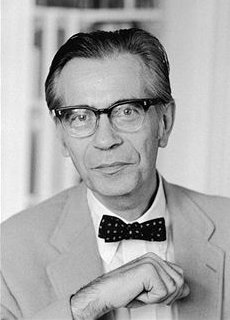
Richard Hofstadter was an American historian and public intellectual of the mid-20th century.

Hubert Henry Harrison was a West Indian-American writer, orator, educator, critic, race and class conscious political activist, and radical internationalist based in Harlem, New York. He was described by activist A. Philip Randolph as "the father of Harlem radicalism" and by the historian Joel Augustus Rogers as "the foremost Afro-American intellect of his time." John G. Jackson of American Atheists described him as "The Black Socrates".
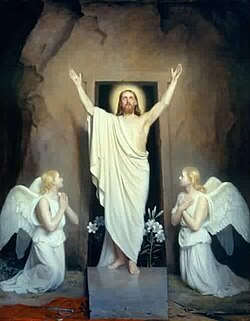
The Christ myth theory, also known as the Jesus myth theory, Jesus mythicism, or the Jesus ahistoricity theory, is described by Bart Ehrman paraphrasing Earl Doherty, as the position that "..the historical Jesus did not exist. Or if he did, he had virtually nothing to do with the founding of Christianity." It includes the view that the story of Jesus is largely mythological, and has little basis in historical fact.
William Dwight Porter Bliss (1856–1926) was an American Episcopal priest and one of the most famous and influential Christian socialists at the turn of 20th century. As a devout churchman, organizer, public speaker and an editor of numerous publications for over 40 years, Bliss became a central figure for the entire Christian socialist movement.

Libertarian Marxism is a broad scope of economic and political philosophies that emphasize the anti-authoritarian and libertarian aspects of Marxism. Early currents of libertarian Marxism such as left communism emerged in opposition to Marxism–Leninism.

Richard Cevantis Carrier is an American author and activist, whose work focuses on empiricism, atheism, and the historicity of Jesus. A long-time contributor to self-published philosophical web sites, including The Secular Web and Freethought Blogs, Carrier has published a number of books and articles on philosophy and religion in classical antiquity, discussing the development of early Christianity from a skeptical viewpoint, and concerning religion and morality in the modern world. He has publicly debated a number of scholars on the historical basis of the Bible and Christianity. He is a prominent advocate of the theory that Jesus did not exist, which he has argued in a number of his works. Carrier's methodology and conclusions in this field have proven controversial and unconvincing to specialists, and he and his theories are often identified as fringe.
Jonathan Irvine Israel is a British writer and academic specialising in Dutch history, the Age of Enlightenment and European Jews. Israel was appointed as Andrew W. Mellon Professor in the School of Historical Studies at the Institute for Advanced Study, Princeton, New Jersey, in January 2001. He was previously Professor of Dutch History and Institutions at the University College London.

Hegemony and Socialist Strategy: Towards a Radical Democratic Politics is a 1985 work of political theory in the post-Marxist tradition by Ernesto Laclau and Chantal Mouffe. Developing several sharp divergences from the tenets of canonical Marxist thought, the authors begin by tracing historically varied discursive constitutions of class, political identity, and social self-understanding, and then tie these to the contemporary importance of hegemony as a destabilized analytic which avoids the traps of various procedures Mouffe and Laclau feel constitute a foundational flaw in Marxist thought: essentializations of class identity, the use of a priori interpretative paradigms with respect to history and contextualization, the privileging of the base/superstructure binary above other explicative models.

God Is Not Great is a 2007 book by British-American author and journalist Christopher Hitchens, in which he makes a case against organized religion. It was originally published in the United Kingdom by Atlantic Books as God Is Not Great: The Case Against Religion and in the United States by Twelve as God Is Not Great: How Religion Poisons Everything, but was republished by Atlantic Books in 2017 with no subtitle.
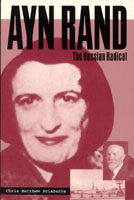
Ayn Rand: The Russian Radical is a 1995 book by Chris Matthew Sciabarra tracing the intellectual roots of 20th-century Russian-American novelist and philosopher Ayn Rand and the philosophy she developed, Objectivism.
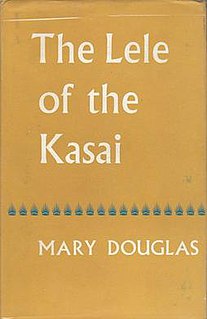
The Lele of the Kasai (1963) was the second book by the influential British anthropologist Mary Douglas and the first under her married name. In it she reported on her anthropological fieldwork among the Lele people on the western bank of the Kasai River in the Basongo area of what had at the time been south-western Belgian Congo. The ending of Belgian colonial rule in 1960 was one of the factors that brought her to abandon the usual practice in anthropological field reports of writing in the present tense. The book describes the social, economic and religious life of a large Lele village.

The Young Hegelians, or Left Hegelians (Linkshegelianer), or the Hegelian Left, were a group of German intellectuals who, in the decade or so after the death of Georg Wilhelm Friedrich Hegel in 1831, reacted to and wrote about his ambiguous legacy. The Young Hegelians drew on his idea that the purpose and promise of history was the total negation of everything conducive to restricting freedom and reason; and they proceeded to mount radical critiques, first of religion and then of the Prussian political system. They rejected anti-utopian aspects of his thought that "Old Hegelians" have interpreted to mean that the world has already essentially reached perfection.
















